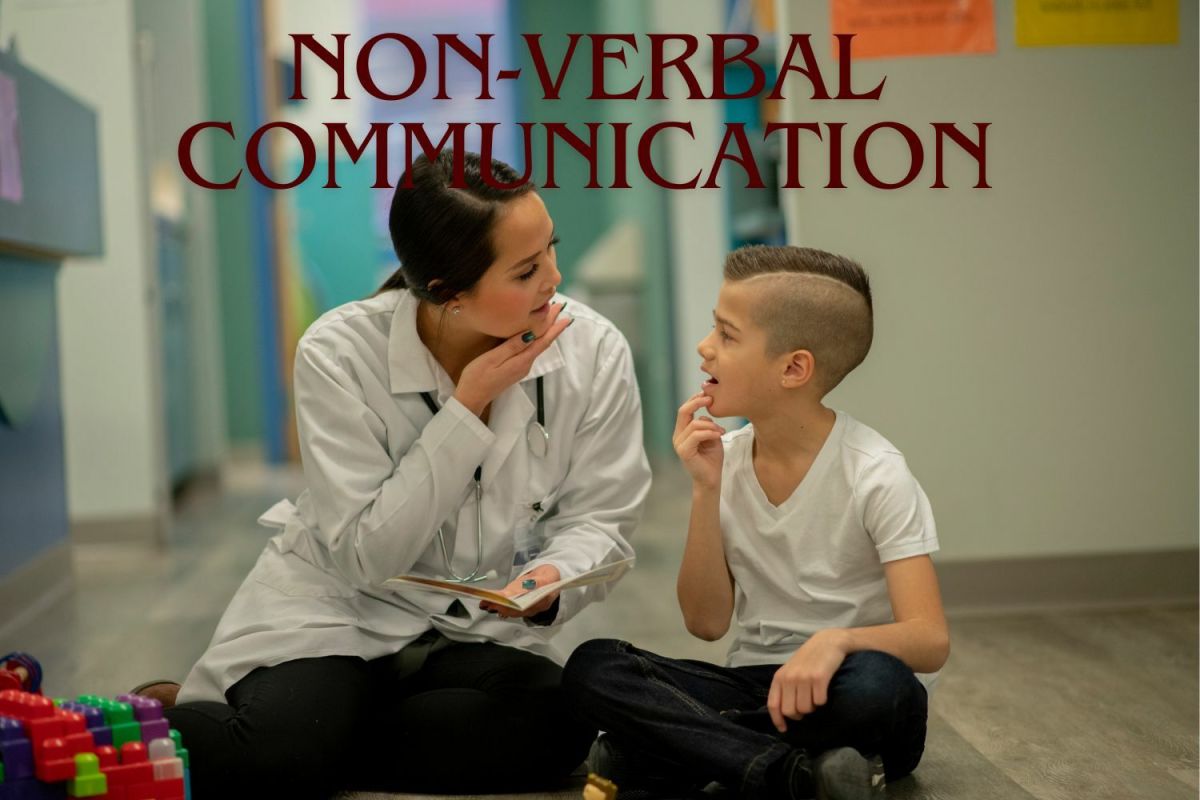Autism Awareness: A Guide for Parents

What Is Autism
Autism is a multifaceted Neuro-behavioral state, also known as ASD Autism Spectrum Disorder.
Lack of social interaction, language disorder, communication skills combined with rigid and repetitive behaviors are the range of conditions. In simple words, autism is a lifetime developmental disability that affects an individual to communicate and behave with others, moreover, how they see and understand the world.

History of Autism
The term autism initially said by the specialist Eugen Bleuler in 1908. He used it to explicate a schizophrenic patient who had withdrawn into his own world. Autos is a Greek word that mean self. The word “autism” was used by Bleuler to describe self-admiration and withdrawal within the self.
Autism analysis pioneers were Hans Asperger and Leo Kanner. They were operating severally, within the 1940s. Their research was helpful for physicians for almost three decades.
According to the study the patient ratio of autism is more in the US and China as compared to the world, however, it is found in other parts of the world as well.
Types of Autism
There are several sub types of autism, mostly affected by, combination of genetic and environmental factors. Since autism is a spectrum disorder, therefore each person has a different set of strengths and challenges. It has been noticed that some of the people with autism need more support and help in their daily life while some may need less and it has been also noticed that some of them can live independently.
There might be multiple factors that affect development of autism like sensitiveness and medical issues like gastrointestinal (GI) disorders, seizures or sleep disorders, as well as mental health issues like attention, depression and anxiety issues.
Spotting the Warning Signs
Observing your child growth is very important. Autism is a disorder, delay in behavioral development, therefore close observation of your child has always been highly recommended. Evaluating social, emotional problems and disorders are the effective way to spot the problem. However, developmental delays do not automatically point to autism, they will show the risk sensitive.
Learning capability varies in children that includes walking, talking. There is a range of normal, healthy development, therefore there is no need to panic if you notice a little delay in your child development. However, if your child is not meeting the milestones according to their age or you notice any problem, consult with the pediatric doctor without any delay.
The 'do not worry everything will be fine' approach is absolutely wrong, never delay or wait to take an expert's advice and treatment if any developmental delay you notice. By this approach some people might be losing curable and treatable time when their child might be having the best chance of improvement. Whether the delay is because of autism or because of other factors, your child need extra help and treatment to develop skills.
Your child’s doctor will investigate the symptoms of autism and other development delay issue, however sometimes they are not able to drag out the issue, therefore your observations will help the doctor a lot, thus trust your gut feelings and share it. Observe the doctor's investigation if you are not satisfied take a second opinion.
Some Common Repetitive Behaviors
Finger flicking
| Repeating words or noises
| Rocking back and forth
|
Hand flapping
| Watching moving objects
| Staring at lights
|
Lining up toys
| Flicking light switches on and off
| Tapping ears
|
Autism Symptoms Appearance
The symptoms of autism, usually appears at the age of 2 or 3 however, some associated growth delays may seem earlier in 18 months. If, an autism diagnoses in an infant or by 18 months of age the treatment might be very helpful and may reverse the symptoms.
Your child’s doctor plays an important role, however, never neglect the importance of your own observations. The secret of success is always learning so learn and teach yourself, therefore you recognize what is normal within your child and when to rush to the physician.
There is a misconception in understanding of behavioral signs of autism, usual signs are the lack of normal behaviors not the abnormal ones. Some Autistic infant child stares mothers while being fed moreover some do not respond even to a hug.
According to research and study, early investigation and diagnosis leads to better results.
Early Age Symptoms
There are several sing of autism and may vary, however, some of the common early age symptoms are;
1- If your child is not making eye contact while you are smiling or while being fed.
2- If your child is not responding when being called by their name or other known sounds.
3- When you point at objects and things and your child is not responding visually.
4- If your child is not responding to the nonverbal communication gestures.
5- Habitually creates noises to get your attention.
6- If your child is not responding while being picked up.
7- Regularly copying your movements and facial expressions.
8- If your child does not show interest to others or in playing with other people.
9- If your child does not notice or care if you hurt yourself or experience discomfort.

Older Age Symptoms
As your child grows the red flags of autism become, more complex. There are various signs, but all revolve around lack of social, language and communication skills. Parents are the first and best child behavioral observer. If, you notice any of the following consult a doctor.
1- Not willing to interact with others moreover they do not show interest that what is going around.
2- Not able to make friends, not able to play with others or even to hook up.
3-They mostly prefer not to be cuddled or touched.
4- Not able to play mental games, also in the group or in team moreover, they play with toys in a strange and a creative way.
5- Not able to conceive as well as express their feelings.
6- Seem deaf when others talk to them.
7-They are not interested to show their accomplishments and interest to others.
Social Interaction in quite difficult for children with autism. They live their own life within their own world.
Language, Speech and Nonverbal Communication Sign
Children with autism have difficulty with speech, language. They generally start talking late.
1-They speak in a strange or an abnormal rhythm and with a strange tone of voice.
2-They Repeat words again and again.
3-They usually repeat the question instead of answering it.
4-Their pronunciation and accent is incorrect.
5-They have a problem to express their requirements and desires though communication.
6-They do not understand and follow the given instructions.
7-Stays away from eye contact
8-They make a strange facial expression that does not match with their saying.
9-They are not able to understand the other person's tone of voice and facial expressions.
10-They are not able to make gestures usually they make pointing gesture.
11-They react strange to smell, sound and sights. Usually sensitive to loud noises.
12-They make abnormal posture that can clearly explain abnormality.
Prenatal and Environmental Factors that may Cause Autism
Learning is the key to success, research more about autism if you are pregnant or trying to conceive to avoid the risk of autism.
The most scientists and medicine experts believe that autism caused by genetic factors. However, according to the research, environmental factors may increase the risk of autism in your child.
According to the research some babies born with a genetic vulnerability to autism triggered by something in the external environment, while the baby is still in the womb or sometime after birth.
Prenatal health and relaxing environment is an important factor that should consider seriously before conceiving a child.
Nevertheless, some of the other causes that may increase the risk factor of autism in your child are;
1-In the first three-month use of antidepressants can cause autism.
2-Deficiency of folic acid and nutritional deficiencies may increase the risk of autism.
3-Father and mother's age is countable and crucial.
4-Early birth or very low birth weight moreover neonatal anemia can cause autism in your child.
5-If, encounters infections during pregnancy increase the risk of autism in your baby.
6-Chemical pollutant exposure like metals and pesticide may affect if you are pregnant.

Vaccination and Autism
Nobody can control the inherited genes of your kid, or protect them from each natural peril, there is one significant thing you can do to secure them however, you can secure them by vaccinating on schedule.
In spite of a ton of discussion on the subject, logical research doesn't bolster the hypothesis that immunizations or their fixings cause mental imbalance. Five significant epidemiologic investigations led by the U.S., UK, Sweden, and Denmark, found that kids who got antibodies didn't have higher paces of mental imbalance. Moreover, a significant well-being survey by the Institute of Medicine neglected to discover any proof supporting the association. Different associations that have presumed those immunizations are not related to a chemical imbalance to join the Centers for Disease Control and Prevention (CDC), the U.S. Nourishment and Drug Administration (FDA), the American Academy of Pediatrics, and the World Health Organization (WHO).
Facts about Childhood Vaccinations
Vaccines are necessary
Measles, polio, tetanus and whooping-cough are serious diseases are common, but vaccines guard your child from them. However, bacteria and viruses still exist and can affect the children who are not immunized.
Do vaccines cause autism
No research and study shows that vaccination causes autism in children. Even there is no link between childhood vaccination and autism.
Do early vaccines cause autism
Delaying immunizing your child increases the risk. The vaccination schedule designed after many studies and research that what best suits to your child immune system at a specific age. Thus follow the vaccination schedule instead of different one.
Many vaccines are given at once
Overloading the child immune system may cause autism, according to several theories about the recommended vaccine schedule. However, delaying in vaccination does not improve the child health or reduces the risk of autism, delaying in vaccination actually put your child at risk for fatal diseases.
Additional Signs
Children with autism are typically bonded and even obsessive in their behaviors, activities, and interests.
1-They follow a rigid routine.
2-Not able to adopt any changes in schedule or environment.
3-They got attracted with a few toys and mostly with strange objects like keys, different switches and it is also noticed that they arrange things in a certain order typically in lines.
4-Distraction with a narrow point of interest, with numbers or images.
5-They keep staring moving objects like ceiling fan or they keep focusing a specific part of an object.
6-Repeats the action like flapping hands or rocking.
How to Reduce the Risk Factors of Autism
This part is especially important for the pregnant woman. According to the Harvard Health publications taking multivitamin will be good because there is no harm of it. Moreover, using of folic acid will also help.
Women during pregnancy encounter depression. Untreated depression can also affect the child. Therefore, talking to your medical physician about the benefits and all about the risks of each drug you use. Avoid having infections. Go for regular checkups, even if you are doing fine. Practice prenatal care, take proper nutritious food will help a lot.
Do you want me to write an article on how to deal a child with Autism?
This content is accurate and true to the best of the author’s knowledge and is not meant to substitute for formal and individualized advice from a qualified professional.
© 2019 Dr Kamran Jalali








